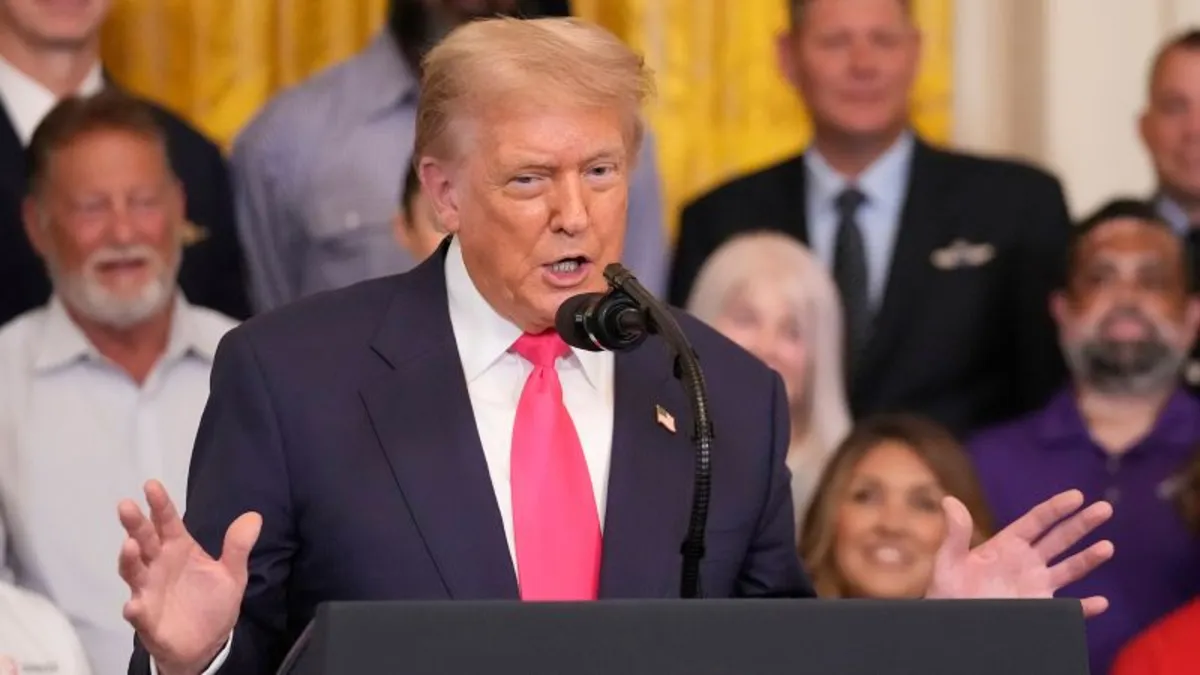
On Friday, China indicated it would endorse the export of rare earth minerals to the United States, just hours after officials from the White House announced that the two nations had reached a significant agreement. This development marks a crucial breakthrough following weeks of intense negotiations regarding US access to these vital materials.
Rare earths are indispensable in various applications, ranging from everyday electronics to advanced military equipment like fighter jets. These elements have recently become a focal point in the ongoing trade frictions between the world’s two largest economies. As the escalating tariff disputes transformed into a struggle over supply chains, rare earths emerged as a critical issue.
According to a statement from China’s Ministry of Commerce, “China will approve the export application of controlled items that meet the conditions in accordance with the law. The United States will cancel a series of restrictive measures taken against China accordingly.” This statement directly addressed inquiries about how “China will accelerate the export of rare earths to the United States.”
The Chinese announcement came on the heels of comments made by US President Donald Trump and Commerce Secretary Howard Lutnick, who confirmed that an agreement had been reached. This deal appears to formalize an understanding that was initially reached during discussions in London earlier this month, which required approval from both Trump and Chinese President Xi Jinping.
Bloomberg News reported that US Commerce Secretary Howard Lutnick stated, “China is going to deliver rare earths to us,” and that once this occurs, “we’ll take down our countermeasures.” This reference pertains to the export restrictions imposed by the US on China in May, prompted by accusations that Beijing had not honored a previous agreement made in Geneva regarding rare earth exports.
During a White House event on Thursday, Trump mentioned, “we just signed with China yesterday,” though he did not provide further details. In its Friday statement, China’s Commerce Ministry expressed a desire for both nations to “continuously enhance consensus, reduce misunderstandings, strengthen cooperation, and jointly promote the healthy, stable, and sustainable development of China-US economic and trade relations.”
As per the International Energy Agency, China controls approximately 90% of global rare earth processing. Last month, the two countries reached a preliminary agreement in Geneva to de-escalate the hefty tariffs that had effectively resulted in a trade embargo. However, this agreement quickly fell apart due to frustrations from the Trump administration over China’s failure to lift export controls on rare earths, which had been imposed following Trump's reciprocal tariffs in April.
In retaliation, the US implemented export restrictions on items such as chips, software, ethane, and jet engines, while also threatening to revoke the visas of Chinese students. China claimed to be adhering to the agreement and accused Washington of reneging on its commitments. In response, officials from both countries reconvened for negotiations in London in June.
Following these discussions, Trump announced that a deal had been reached, contingent on approval from both national leaders, and that both sides had agreed to ease export restrictions. He also hinted that the US would permit Chinese college students to enroll in American universities. Trump stated that “magnets and any necessary rare earths will be supplied up front by China,” emphasizing the importance of these materials.
This week, Reuters reported that the US Commerce Department has permitted ethane traders to load ethane onto vessels destined for China. However, they remain prohibited from unloading without authorization, signaling that the administration may be preparing to lift existing curbs. Under the dual-use licensing regime introduced by China for rare earths in April, exporters must obtain approvals for each shipment and provide documentation verifying the intended end use of these materials.
Despite China's claims of expediting approvals for compliant rare earth export licenses, many companies are still grappling with securing adequate supplies of these critical elements and magnets. Analysts suggest that China’s dual-use export restrictions may still prevent shipments to military suppliers, thereby limiting access to essential materials for US defense contractors.